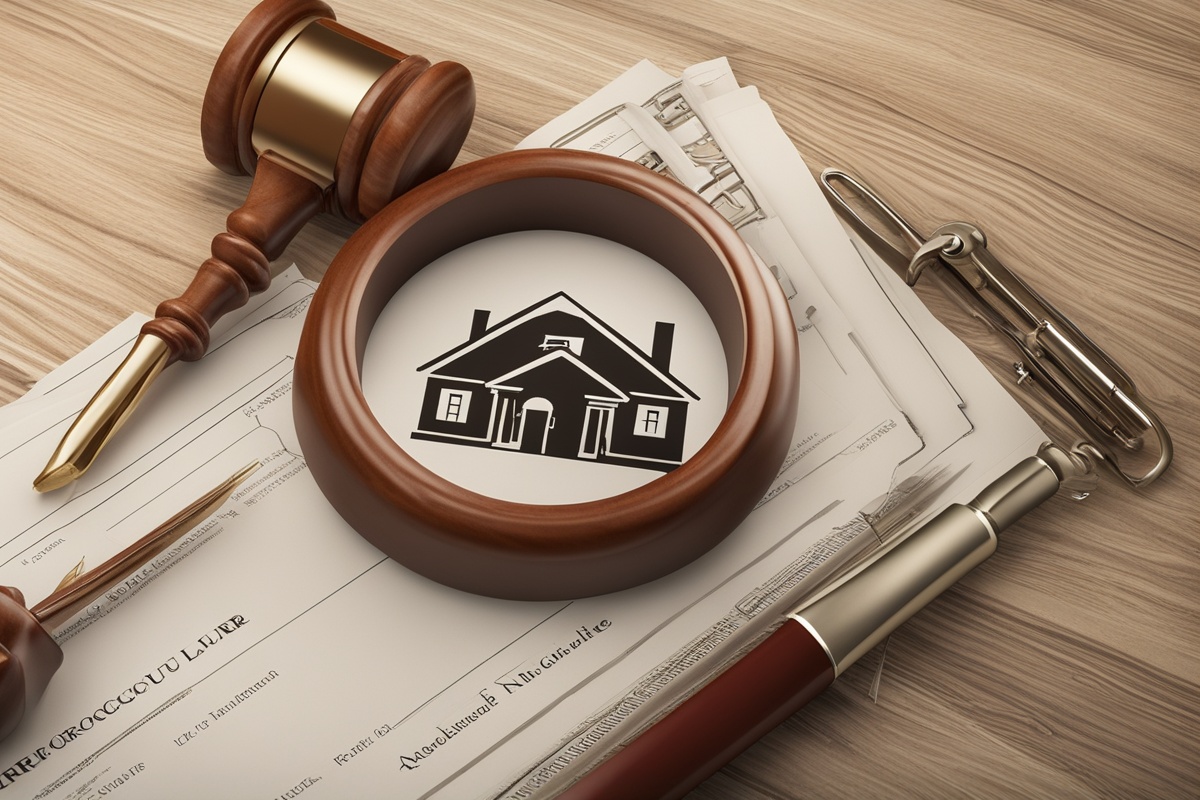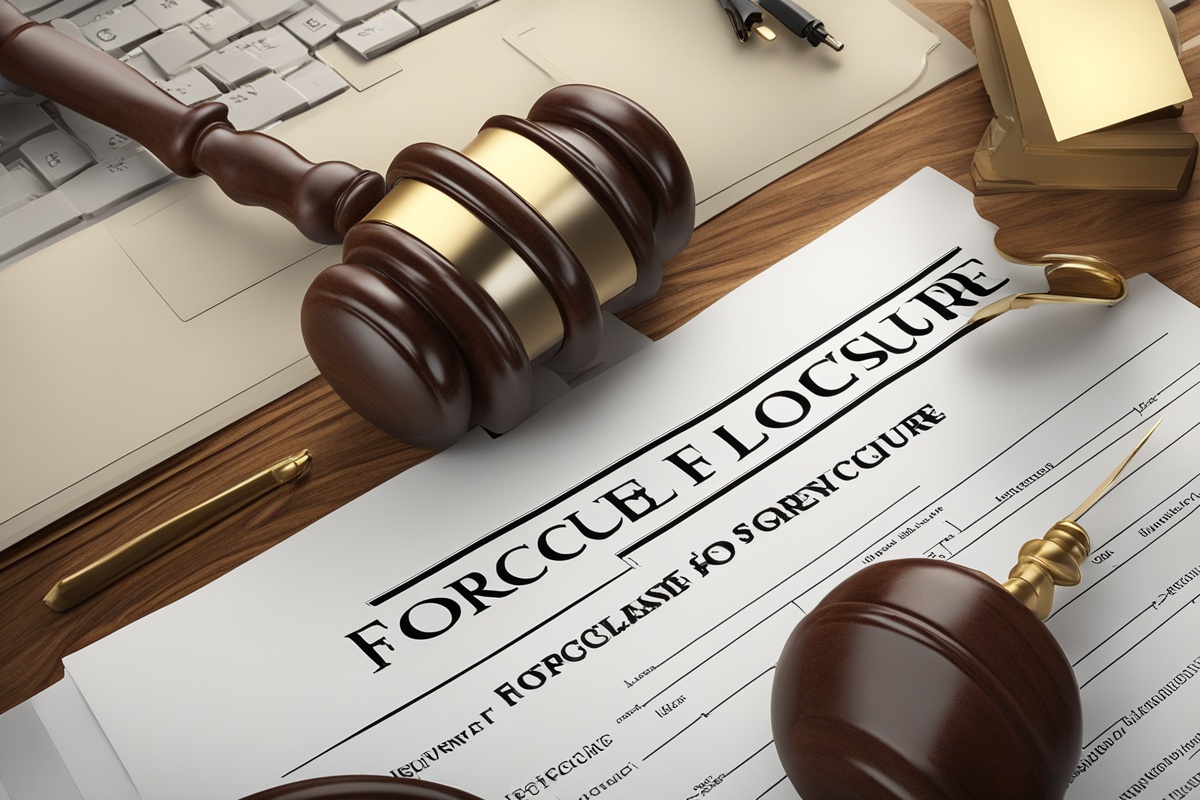Navigating home repossession disputes can feel like walking a tightrope. One wrong step, and you might lose everything you’ve worked so hard to build. Whether you’re a homeowner facing the gut-wrenching threat of foreclosure or a tenant caught in the crossfire of a property dispute, the emotional and financial toll can be overwhelming. I’ve seen it firsthand—families scrambling to save their homes, unsure of where to turn. But here’s the thing: knowledge is power. Understanding your rights, the legal process, and the strategies to fight back can make all the difference. In this deep dive, we’ll explore how to navigate home repossession disputes with clarity and confidence, offering actionable insights to help you weather the storm.
Disclaimer: This article is for informational purposes only, based on general research and extensive experience in the field of foreclosure litigation. It is not a substitute for professional legal advice, diagnosis of your specific situation, or tailored guidance. Laws and regulations surrounding home repossession vary widely by state and jurisdiction, and individual circumstances can drastically alter the best course of action. Always consult a qualified attorney or legal expert for personalized advice before making decisions related to foreclosure or property disputes. The information provided here is meant to educate and empower, but it should not be relied upon as the sole basis for legal action.
Understanding the Basics of Home Repossession Disputes
Let’s start with the foundation. What exactly is a home repossession dispute? At its core, it’s a conflict—often between a homeowner and a lender—over the right to possess a property due to missed mortgage payments or other breaches of contract. Lenders initiate foreclosure proceedings to reclaim the property, while homeowners may contest the action, arguing unfair practices, errors in documentation, or personal hardships. It’s not just a numbers game; it’s deeply personal. Imagine you’ve missed a few payments after a job loss, and suddenly, you’re staring at a foreclosure notice. Your instinct might be to panic, but hold on—there’s often more to the story than meets the eye.
Disputes can arise from a variety of issues: predatory lending practices, miscommunication about loan modifications, or even clerical errors in paperwork. I once worked with a client who nearly lost their home because the lender claimed they hadn’t received payments—payments my client had proof of sending. It took digging through bank statements and certified mail receipts to set the record straight. The lesson? Documentation is your lifeline. Knowing the root of the dispute is the first step in navigating home repossession disputes effectively.
Know Your Rights: The Legal Shield You Didn’t Know You Had
Here’s a question for you: Do you know what protections are in place to keep you from losing your home overnight? Many don’t. Federal and state laws offer safeguards for homeowners facing repossession. For instance, under the Dodd-Frank Wall Street Reform and Consumer Protection Act, lenders are required to provide clear communication and explore alternatives like loan modifications before rushing to foreclose. Some states also have mandatory mediation programs to encourage negotiation. These laws aren’t just fine print—they’re tools you can wield.
Take a hypothetical scenario: You’re in a state with a “right to cure” law, which gives you a window to catch up on missed payments before foreclosure is finalized. If you’re unaware of this, you might assume the game’s over when it’s not. I’ve seen homeowners turn the tide by invoking these rights at the eleventh hour. So, dig into your state’s foreclosure laws (a quick search on your state government’s website can yield gold) and consider reaching out to a local legal aid organization for free resources. For more on legal protections, check out our detailed guide on Foreclosure Laws by State.
Strategies for Negotiating with Lenders
Let’s talk strategy. When navigating home repossession disputes, sitting down with your lender isn’t just a formality—it’s often your best shot at a resolution. Lenders don’t always want to foreclose; it’s costly and time-consuming for them too. That’s why options like forbearance, loan modifications, or repayment plans exist. But here’s the catch: you’ve got to approach the conversation prepared. Walking in empty-handed is like showing up to a chess match without knowing the rules.
A few years back, I advised a family who’d fallen behind on payments after a medical emergency. They were terrified of losing their home but hesitant to reach out to their lender. We crafted a hardship letter detailing their situation, gathered proof of income to propose a realistic repayment plan, and scheduled a meeting. The lender agreed to a temporary forbearance, buying them time to recover. The takeaway? Be proactive, transparent, and persistent. If you’re unsure how to draft a hardship letter, our resource on Writing Hardship Letters for Foreclosure can walk you through it step by step.
Common Pitfalls to Avoid in Repossession Disputes
Now, let’s flip the coin and talk about what not to do. One of the biggest mistakes I see is ignoring the problem. I get it—facing foreclosure is stressful, and it’s tempting to bury your head in the sand. But every missed deadline or ignored notice tightens the noose. Another pitfall is falling for scams. So-called “foreclosure rescue” companies promise quick fixes for a hefty fee, only to disappear with your money. I’ve heard horror stories of homeowners losing thousands to these predators, with nothing to show for it.
Then there’s the issue of incomplete paperwork. If you’re contesting a repossession, every form, every date, every signature matters. Miss a filing deadline with the court, and your case could be thrown out. My advice? Triple-check everything, and if possible, get a second set of eyes on your documents—preferably a legal professional’s. Avoid these traps, and you’ll stand a stronger chance of coming out on top.
When to Seek Legal Help: Don’t Go It Alone
Here’s where I’ll be blunt: navigating home repossession disputes often requires more than grit and Google. While educating yourself is crucial, there’s no substitute for a seasoned attorney who knows the ins and outs of foreclosure litigation. They can spot defenses you might miss, like violations of the Truth in Lending Act or improper notice procedures by the lender. I recall a case where an attorney uncovered that a lender had failed to provide proper notice under state law, halting the foreclosure in its tracks.
Legal aid isn’t always out of reach, even if funds are tight. Many communities offer free or low-cost services through nonprofit organizations. And if you’re wondering how to find a reputable lawyer, start with referrals from trusted sources or check your state bar association’s directory. For additional tips on choosing representation, see our post on Finding the Right Foreclosure Attorney.
Emotional and Financial Recovery After a Dispute
Let’s not sugarcoat it—home repossession disputes take a toll, even if you “win.” The stress can strain relationships, and the financial hit might linger for years. But recovery is possible. Start by rebuilding your credit if foreclosure has damaged it; small steps like paying bills on time and reducing debt can slowly turn things around. Emotionally, don’t hesitate to lean on support networks—friends, family, or even counseling if the weight feels too heavy.
I remember speaking with a homeowner who, after settling a dispute, felt defeated despite keeping their home. They’d drained their savings and felt isolated. Joining a local support group for homeowners facing foreclosure helped them regain perspective and share coping strategies. It’s a reminder that you’re not alone in this fight. Focus on small victories, and give yourself grace to heal.
References
- Consumer Financial Protection Bureau – Dodd-Frank Act Overview
- U.S. Department of Housing and Urban Development – Avoiding Foreclosure
- Nolo – Foreclosure Rights and Defenses
- American Bar Association – Foreclosure Resources for Homeowners
This content is for informational purposes only and not a substitute for professional advice.





